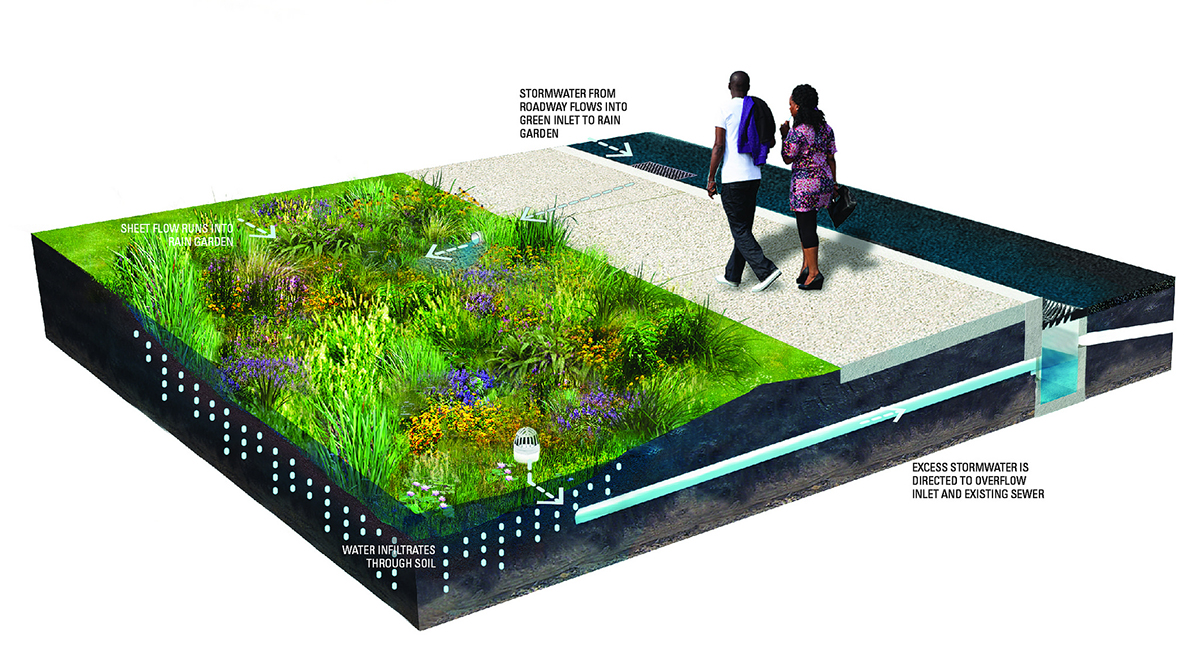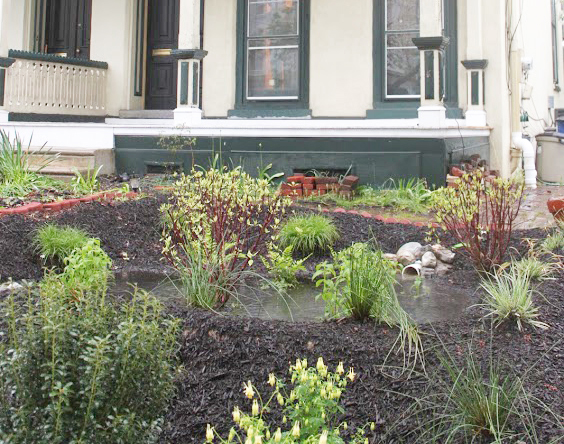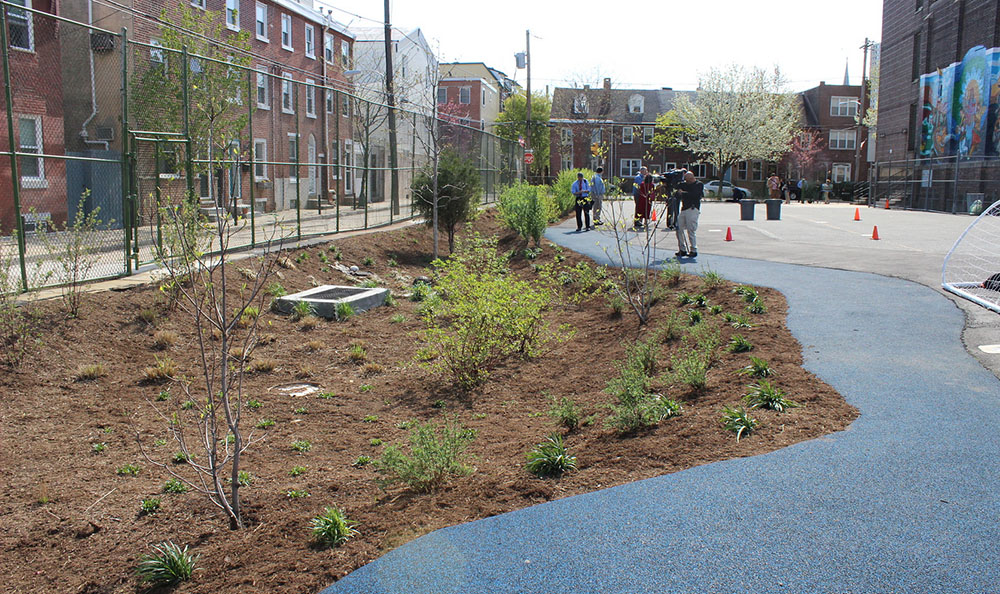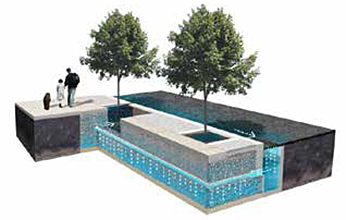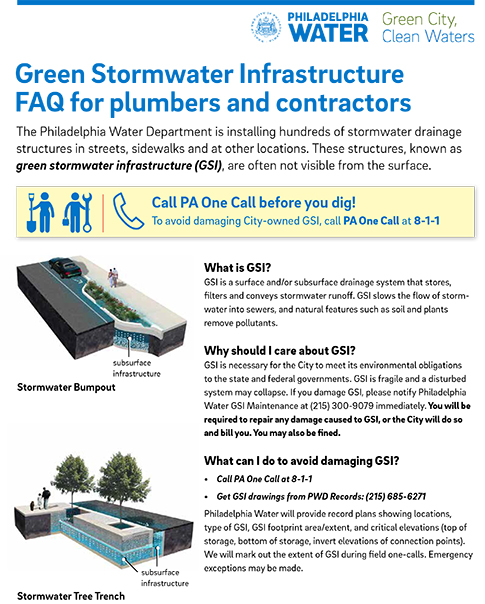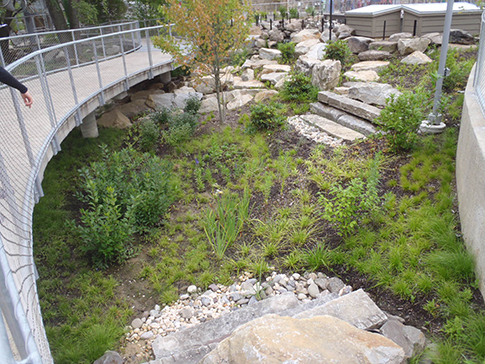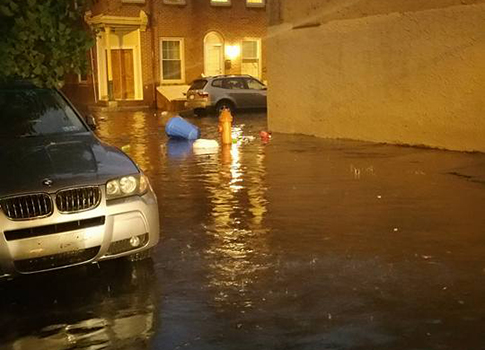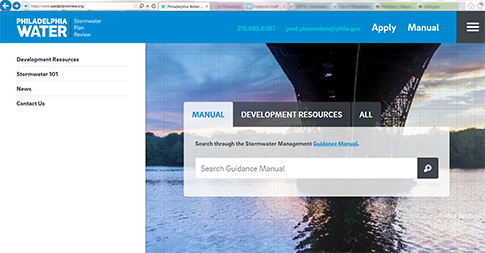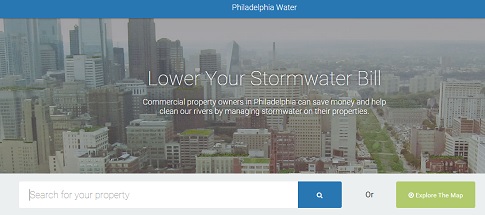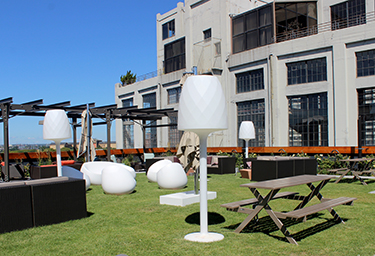
A green roof on the Granary Building that was built in part to meet Philadelphia Water's Stormwater Regulations. Changes to the regulations are designed to encourage even more private green infrastructure projects. Credit: Philadelphia Water
Every time something new gets built in Philadelphia, it presents an opportunity to improve the way we deal with stormwater runoff—a big source of pollution that hurts our waterways, but often gets overlooked as “just rain.”
In order to make sure new development contributes to Philadelphia’s vision for a modern stormwater system that protects our rivers and creeks, we have a set of standards—collectively called Stormwater Regulations—that let developers know how their property should handle the water that comes from rainstorms and other wet weather events.
It’s been nearly a decade since we established our Stormwater Regulations in 2006, and starting July 1, 2015, new construction projects will have updated rules for managing stormwater. These changes reflect evolving agreements between Philadelphia and the Pa. Dept. of Environmental Protection, (the state agency that regulates our local waterways), and the EPA.
In order to make sure the development community and the public are fully aware of our updated Stormwater Regulations, we’re holding a series of public information sessions. If you’re interested in learning more—especially if you’ll be working on a new construction project—you should click here and register to hear more details about the changes.
The information sessions are scheduled for June 23rd and 30th and July 9th and 23rd from 8:30 a.m. to 11:30 a.m., and will be held in the Municipal Services Building, 1401 JFK Blvd.
Stormwater management on development sites is critical to the success of Green City, Clean Waters. Since 2011, private developers have built over 900 green stormwater management tools in the city, and the new regulations will provide incentives for even more.
Quick Read: What the Changes Mean
Water Quality Improvements
Manage more water. The Water Quality Volume will increase from 1 inch to 1.5 inches. This will help reduce combined sewer overflows and local flooding, with minimal impact to site design. Applies to all development sites.
Slow water entering sewers. The peak release rate will decrease from 0.24 to 0.05 cubic feet per second per acre of non-infiltrating impervious area. This will make the rate at which water leaves a site and enters the sewer system equal to the rate at which treatment plants can clean the water. Applies to about 23 percent of projects each year.
Clean water entering sewers. Philadelphia Water will require 100 percent of surface runoff that can’t infiltrate the ground to go through a pollutant reducing practice. This requirement will remove pollution from the dirtiest stormwater on a property. Applies to about 23 percent of projects each year.
Business-Friendly Improvements:
Faster project approvals. Philadelphia Water is introducing “Surface Green Review,” a new expedited review process for sites that use surface practices to manage stormwater.
Simpler application resources. Simplified technical worksheets and Plan Review application resources will improve the quality of submissions and reduce review times. By using these resources, designers will know before submitting that their projects meet regulations.
Accessible information. The new digital Stormwater Management Guidance Manual and Plan Review website will provide better information in a user-friendly format.
